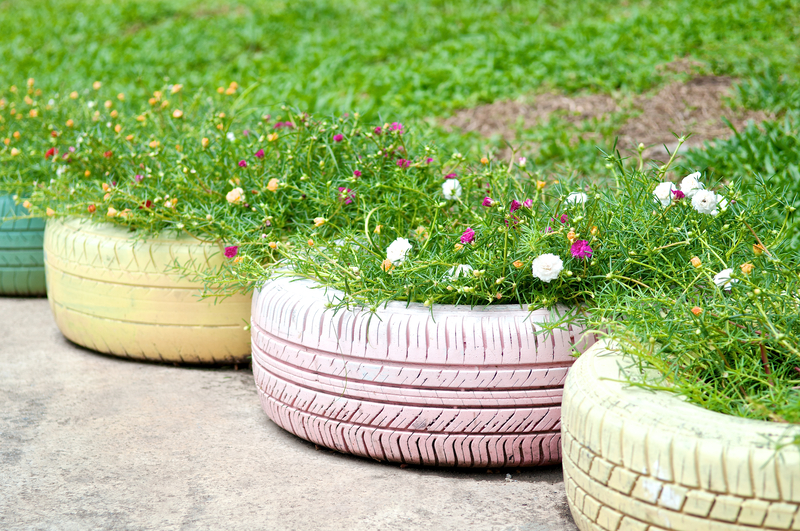Your Guide to Budget-Smart Bulky Waste Item Management
Handling bulky waste items can often present unique challenges for households, businesses, and community facilities. Not only are these items heavy and awkward, but disposing of them incorrectly can also harm the environment and rack up unnecessary costs. That's why learning the art of budget-smart bulky waste item management is crucial for anyone looking to take charge of their waste responsibly and affordably.
What Are Bulky Waste Items?
Let's start by clearly defining bulky waste. Bulky waste consists of large household or commercial items that are too large or heavy to be handled by regular waste collection. Common examples include:
- Old sofas and couches
- Mattresses and bed frames
- Large appliances (refrigerators, washing machines, etc.)
- Tables and chairs
- Carpets and rugs
- Garden equipment
- Exercise equipment
- Renovation debris (doors, windows, etc.)
Bearing in mind the size and complexity of these items, disposal demands a smart, cost-effective approach.

Why Is Cost-Effective Bulky Waste Management Important?
Improper disposal of large waste items not only strains personal or municipal finances but also impacts the planet. Here's why budget-friendly bulky item disposal matters:
- Reduces landfill overload: Responsible removal diverts items from overflowing landfills.
- Promotes recycling and reuse: Many bulky waste items are ideal candidates for recycling or repurposing.
- Minimizes costs: Smart planning helps you avoid unnecessary collection fees or penalties for incorrect disposal.
- Supports local communities: Donations keep useful goods in local circulation, supporting those in need.
Understanding Local Bulky Item Collection Services
Each municipality has different guidelines and services for bulky waste removal. To keep your costs down and ensure compliance, always:
- Review local council policies about large item collection and fees.
- Schedule pickups ahead of time, as same-day services are typically more expensive.
- Check for free collection days that many regions offer annually or seasonally.
- Inquire about weight and item limits to avoid surcharges.
Tip: Most local governments publish directories or websites listing their current bulky item waste guidelines. Utilize these for up-to-date savings and legal compliance.
Smart Strategies for Budget-Friendly Bulky Waste Disposal
1. Audit What Needs Disposal
Make a detailed inventory of all large items you plan to discard. This allows you to:
- Prioritize disposal and avoid unnecessary removals.
- Combine multiple items in a single collection to save on fees.
- Identify items suitable for selling, donation, or recycling before tossing them away.
2. Sell or Donate Usable Items
Many bulky items--such as furniture, appliances, and mattresses--are often still in good condition. Consider these options:
- List items on online marketplaces (e.g., Craigslist, Facebook Marketplace).
- Donate to local charities or freecycle networks--some even offer free collection.
- Host a garage sale to earn extra cash and minimize waste.
The more you can divert from landfill, the lower your costs--and the greater your sustainability impact.
3. Recycle When Possible
Many municipalities and private companies offer recycling for specific bulky waste items:
- Appliances and electronics are often recyclable through e-waste programs.
- Mattresses and certain furniture can be separated for material recovery.
- Metals from old bed frames or exercise equipment may be accepted at scrap yards.
Important: Check for hazardous materials (refrigerants in fridges, chemicals in electronics) that require special handling.
4. Break Down and Bundle Items
Disassembling furniture or breaking large debris into smaller, manageable bundles can:
- Reduce the number of pickups, slashing collection costs.
- Make items eligible for curbside collection (if they fit within size requirements).
- Decrease injury risks for collectors and family members.
5. Explore Shared or Community Removal Services
Consider organizing a community-wide bulky waste pickup:
- Neighborhood clean-up events may qualify for free or discounted municipal collection.
- Shared private removals--splitting costs with neighbors--can lower prices for everyone involved.
Professional Bulky Waste Removal: When Is It Worth the Price?
Sometimes, the sheer size or complexity of certain waste items means professional bulky item removal is the smartest option. Here's when it makes sense:
- You have large quantities of debris, such as during major home renovations.
- Items are too heavy or hazardous for personal handling.
- Local services are unavailable or inadequate.
When hiring a pro, always:
- Get multiple quotes to ensure competitive pricing.
- Confirm proper licensing and insurance for safety and accountability.
- Ask about eco-friendly disposal practices (such as recycling or donations).
- Read reviews to check for reliability and transparent fees.
Benefits of Professional Services
- Efficient pickup and loading services
- Special handling for hazardous or specialty items
- Peace of mind if you're unable or unwilling to lift and transport bulky goods yourself
DIY Bulky Waste Removal: Tips for Savings
If you've got the time and resources, do-it-yourself bulky waste management can keep your budget in check. Follow these tips:
- Borrow or rent a suitable vehicle: Pickup trucks or trailers make hauling large items safer and easier.
- Plan a route to minimize travel distance and time when dropping off at multiple facilities.
- Call facilities in advance: Some dumps or recycling centers only take certain types or quantities of bulky items.
- Double up with neighbors: Share transport or disposal costs wherever possible.
- Wear proper safety gear and take necessary precautions when handling heavy, sharp, or unwieldy items.
This hands-on approach gives you more control over costs and ensures your waste is disposed of according to your own ethical standards.
Creative Repurposing: A Sustainable Solution
Embracing creativity can turn unwanted bulky items into valuable new resources. Before opting for disposal, consider:
- Upcycling old furniture with paint, upholstery, or carpentry skills for unique decor.
- Breaking down materials for use in home improvement projects or garden beds (e.g., wood or metal parts).
- Contributing to community art projects or educational programs--many schools and nonprofits welcome material donations.
Repurposing extends the life of waste, saves money, and inspires others towards sustainability.
Tax Benefits and Incentives for Bulky Waste Donations
Did you know that donating large waste items can sometimes grant you tax deductions? Qualifying donations to registered charities--particularly furniture or electronics--may be eligible. Save receipts and check with your local tax authority to see if you qualify.
- Charity thrift stores commonly accept beds, sofas, tables, and working appliances.
- Relief agencies take items needed by families in crisis (e.g., beds, dressers, whitegoods).
This option not only saves disposal fees but also provides valuable assistance to your community.
Bulky Waste Management Myths Debunked
- Myth: "Everything must go to landfill." Fact: Most items can be reused, recycled, or repurposed.
- Myth: "Municipal pickup is always free." Fact: Many locales charge based on weight, number of items, and special handling requirements.
- Myth: "It's less hassle to dump items illegally." Fact: Illegal dumping carries steep fines and can seriously damage your community and the environment.
Education and careful planning are the antidotes to these misconceptions.
Eco-Friendly Tips for Large Waste Management on a Budget
Adopting an eco-conscious approach to bulky waste doesn't have to raise your costs--in many cases, it can actually save you money! Here are some green practices to keep in mind:
- Choose minimal packaging and sustainable designs when buying new items.
- Maintain and repair existing furniture or equipment to extend its usable life.
- Collaborate with local groups for shared hauling and recycling initiatives.
- Request eco certificates from professional services to verify green practices.

Frequently Asked Questions on Budget-Smart Bulk Waste Management
How do I know if my item qualifies as bulky waste?
Check your local waste authority's definitions--if it can't fit in a standard bin, it's likely classified as bulky. Mattresses, old furniture, and broken appliances are common examples.
Are bulky waste pickup services free?
Some municipalities offer limited free collections--often only once or twice a year. Most, however, charge by item or by weight.
Can I recycle all types of large waste?
While many items can be recycled (such as metal, some plastics, and certain electronics), other materials--like composites or treated wood--may require specific disposal methods.
What's the most cost-effective way to get rid of bulky furniture?
Try donating or selling usable items first. For true waste, combine items for a single removal, participate in community pickups, or break items down for standard curbside collection.
Is it legal to leave bulky waste on the curb?
Only leave large items on the curb if your council or hauler has authorized and scheduled a pickup. Unauthorized dumping may result in penalties.
Conclusion: Take Charge of Your Bulky Waste, Save Money, and Protect the Planet
Budget-smart bulky waste item management is about more than saving money--it's about safeguarding resources, supporting your community, and building a cleaner environment. By inventorying your items, leveraging municipal programs, recycling or donating where possible, and making informed DIY or professional choices, you can turn a challenging process into a rewarding one.
Remember: Every responsible choice you make with large-scale waste is a step toward a more sustainable and affordable future. Don't let bulky waste overwhelm your home or your wallet--take action today with these tips, and enjoy the benefits for years to come.